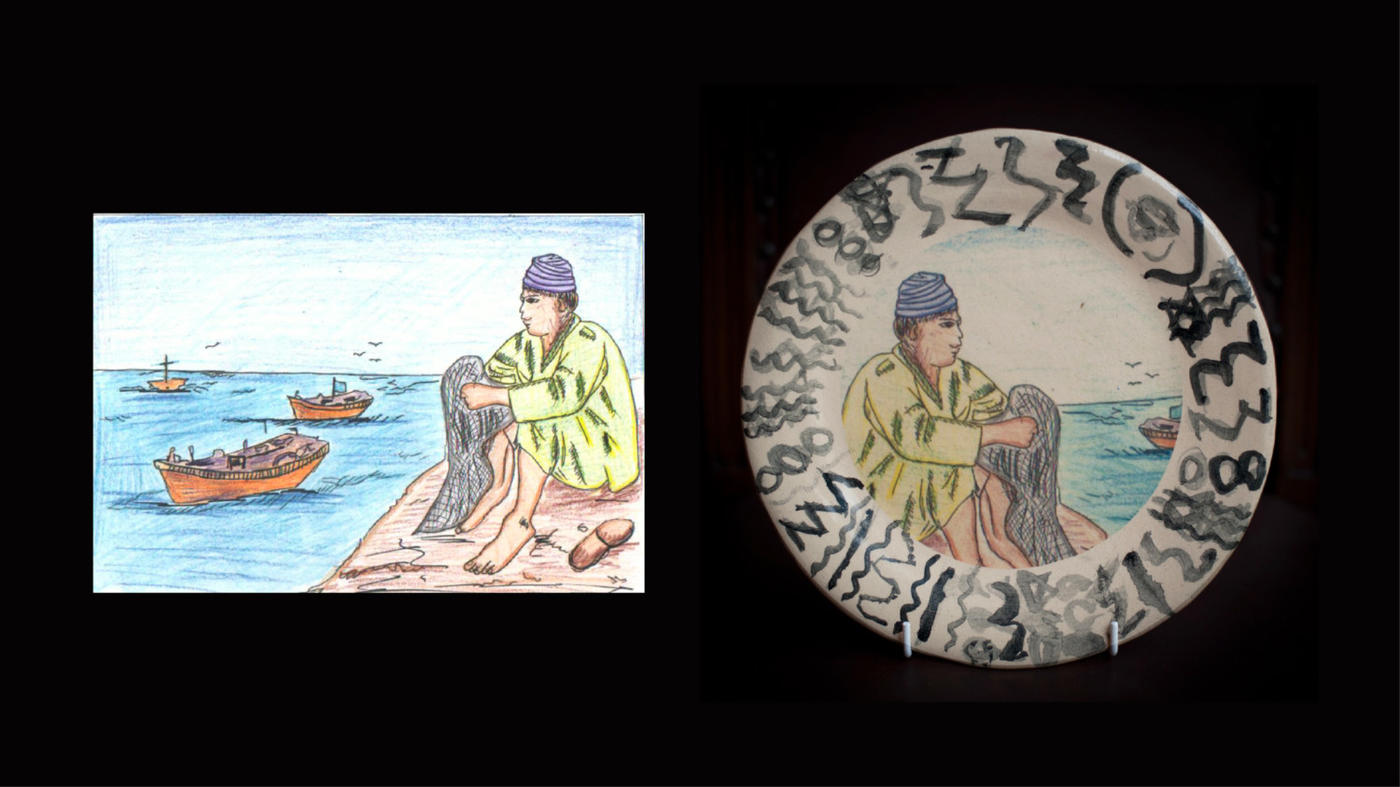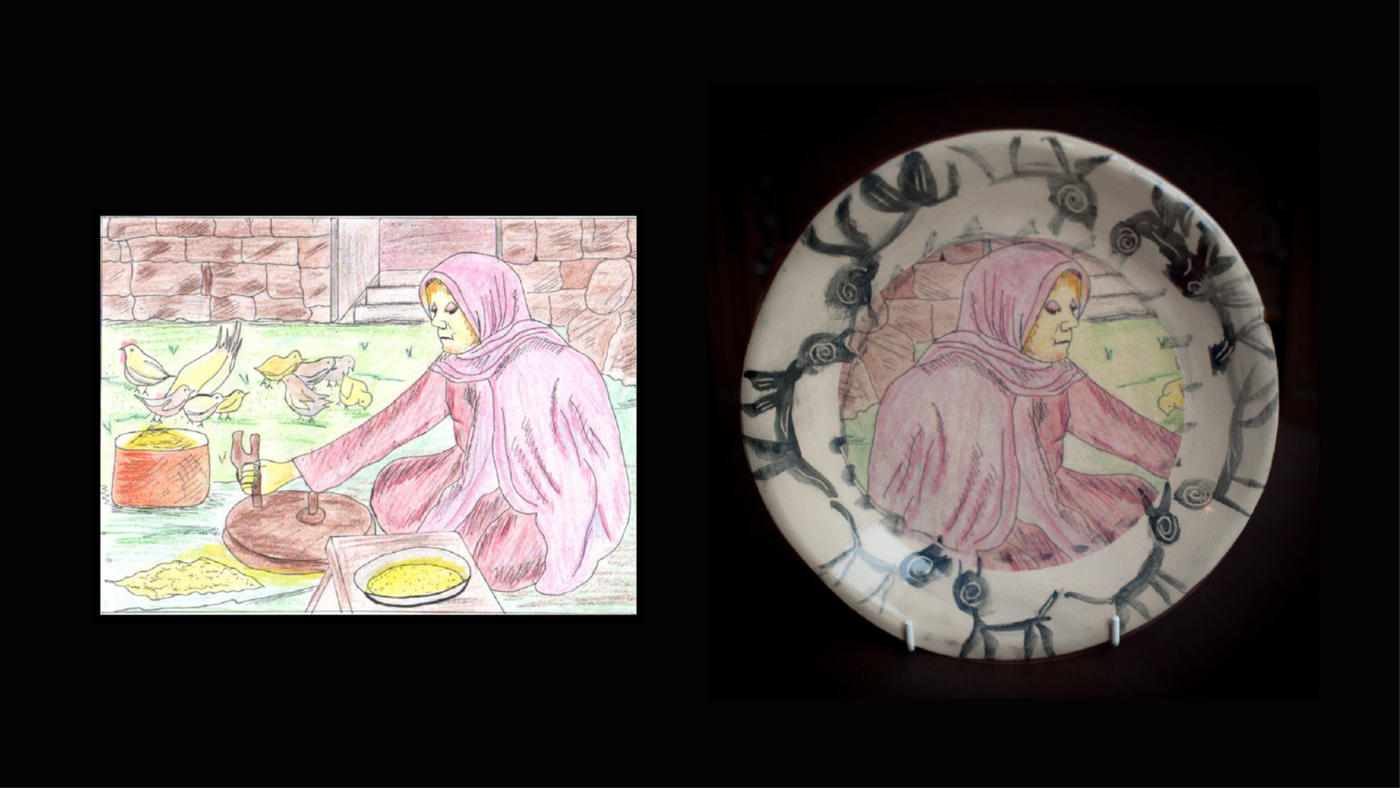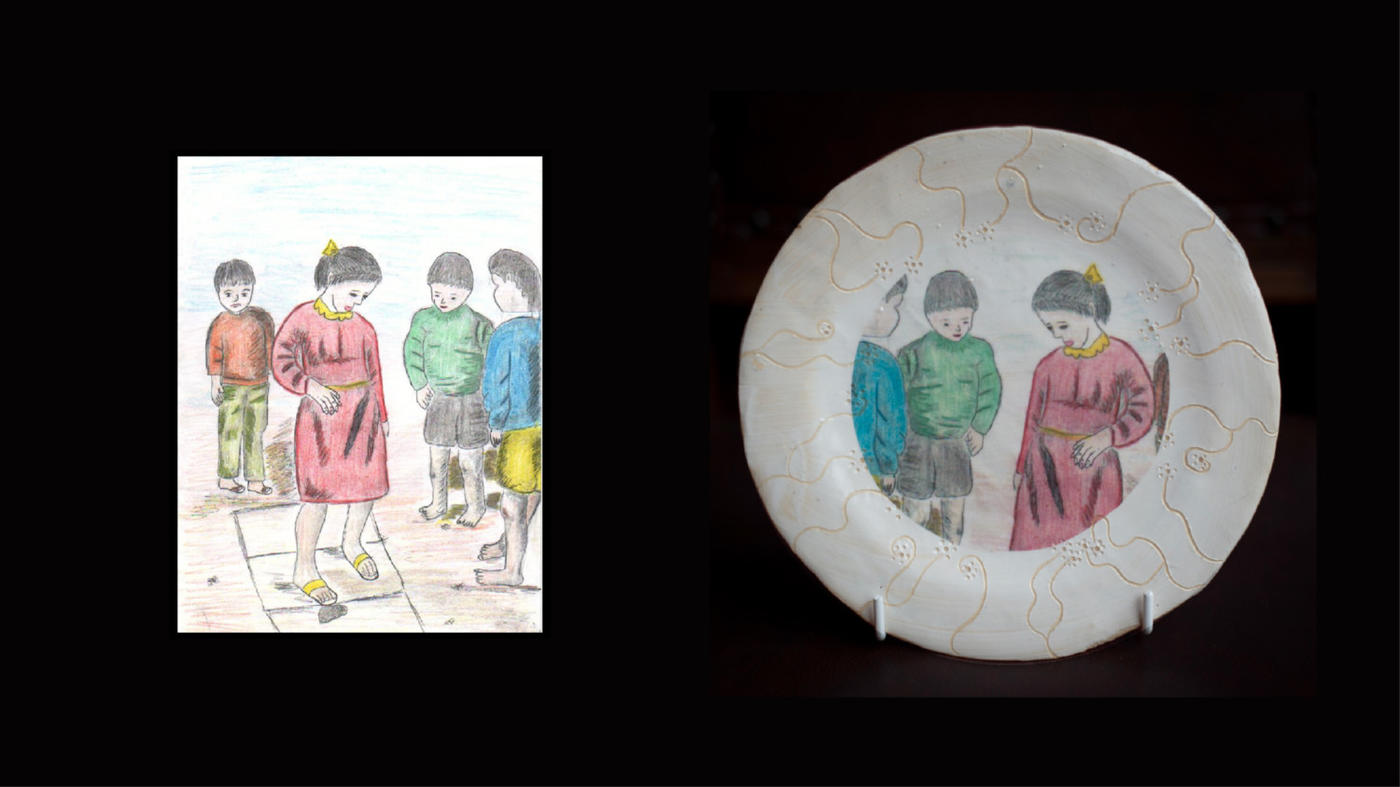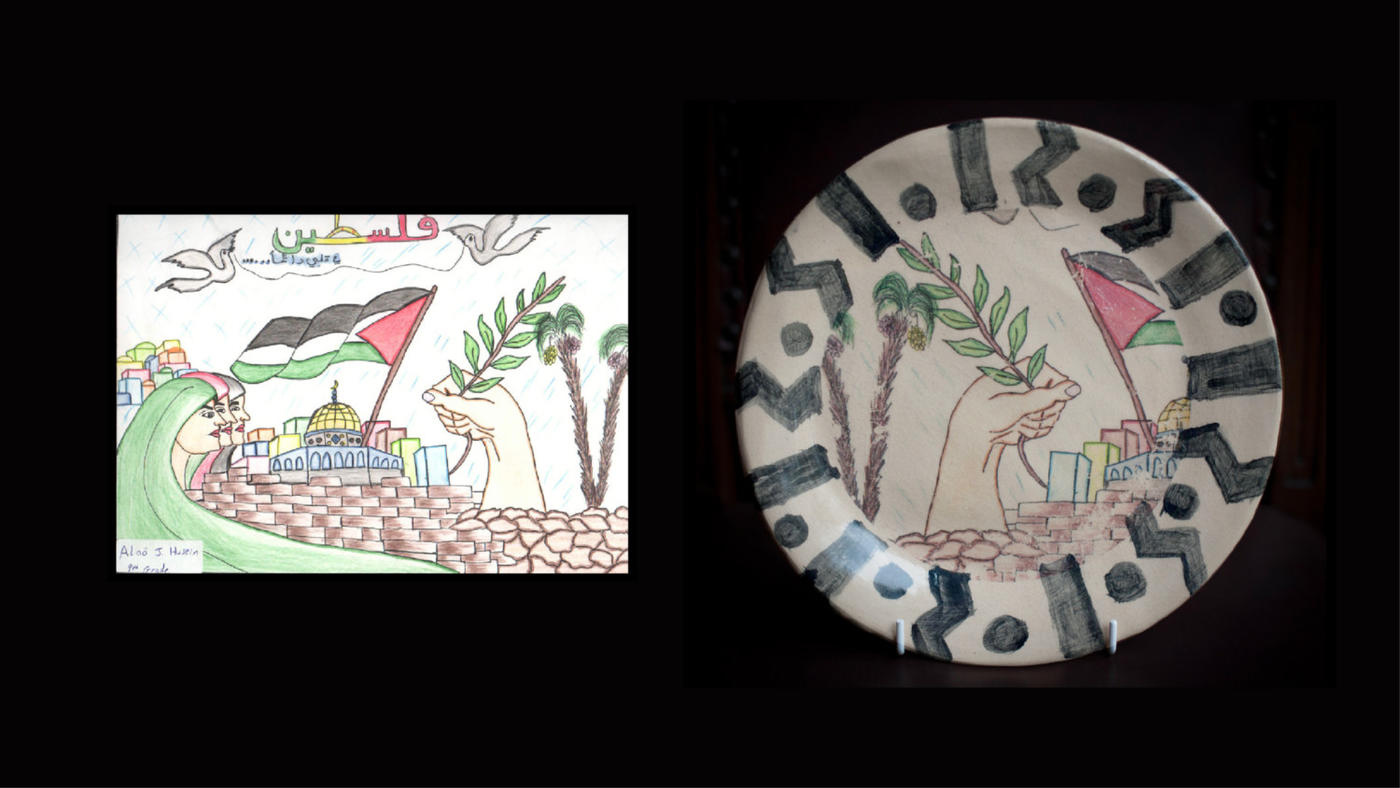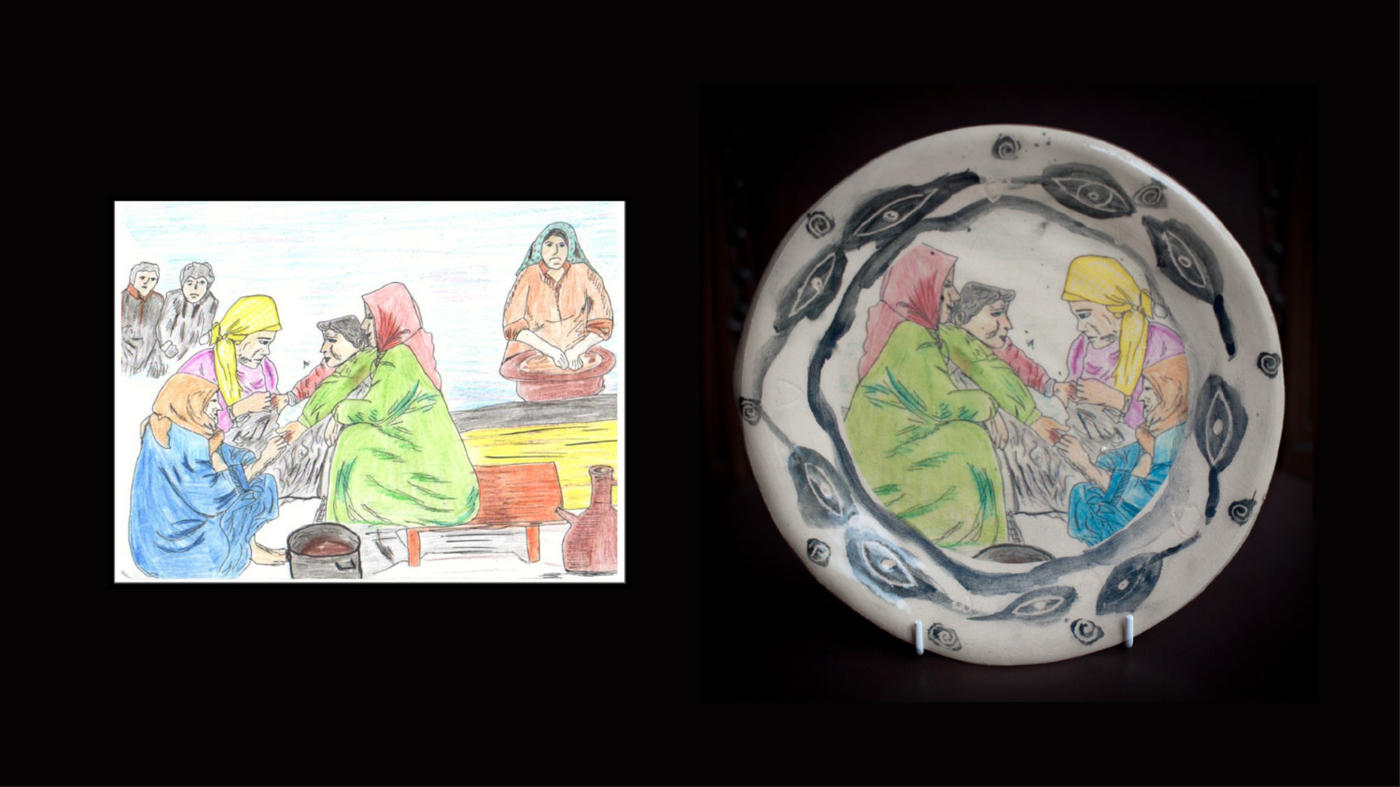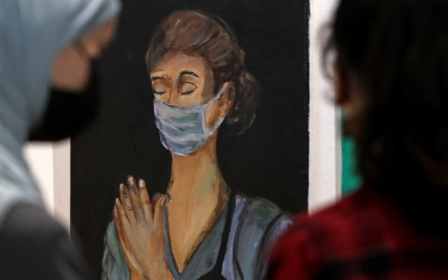Gaza children's artwork, removed from London hospital, looks for new home
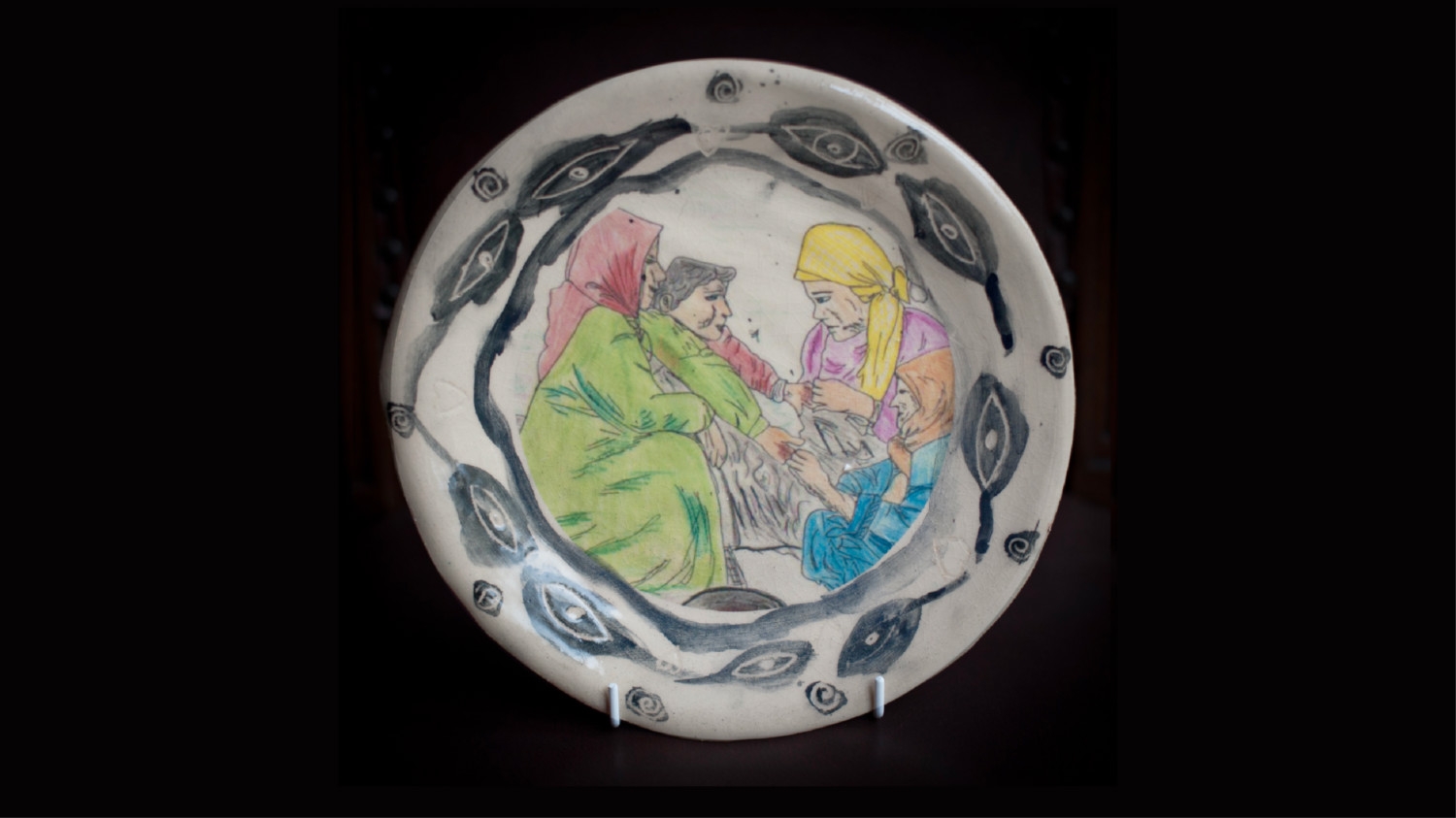
The headteacher at a London hospital school has told Middle East Eye of her shock after British-Palestinian artwork made by children was removed following a complaint by a pro-Israel group.
Chelsea & Westminster Hospital Foundation Trust (C&W HFT) took down the display, "Crossing Borders - A Festival of Plates", amid threats of legal action from the UK Lawyers for Israel (UKLFI).
The project, which consists of 21 ceramic plates, had been exhibited in a corridor next to the children's outpatient department at Chelsea and Westminster Hospital since 2012.
Stay informed with MEE's newsletters
Sign up to get the latest alerts, insights and analysis, starting with Turkey Unpacked
Janette Steel, the principal of Chelsea Community Hospital School (CCHS), which provides full-curriculum education for children receiving treatment at the hospital, told MEE: "It is a wonderful exhibition. What is upsetting now is that it has turned into something ugly and political, which it was not meant to be."
Steel said the art plates were shown in Sweden before being exhibited in 2012 in London at the Nour Festival, which celebrates culture from the Middle East and North Africa.
"It was a joint project with children from London and Gaza. What a smashing project, what a wonderful project. Let's turn down the anger and the upset; this is how we move on with our world by making children work together."
She said of the complaint from UKLFI: "No one complained for 11 years [about the artwork], and that's what is so extraordinary."
Caroline Turner, the director of UKLFI, said on 14 February that it was pleased the plates had been removed and said it had submitted a complaint to the hospital "on behalf of some Jewish patients, who said that they felt vulnerable and victimised by this display".
UKLFI said that the Palestinian flag atop the Dome of the Rock hinted that "Jerusalem and in particular the site of what had been the Jewish Temple, would be part of a Palestinian state".
"The Temple Mount is the holiest place in Judaism, and it is offensive for Jewish people to see a Palestinian flag over their holiest site," it added.
In a previous statement to MEE, the hospital trust said that UKLFI's letter had stated "that some patients had complained to them that some elements of the display caused them offence and made them feel victimised". C&W HFT declined to comment on when they received the letter and when the artwork was removed or on whether the trust itself had received any complaints.
The ceramic art plates are currently in the storeroom at CCHS, which owns them. "We are looking for somewhere in London to display them again," said Steel. "Who would like to host this exhibition? Who would like to see it?"
School makes links with Gaza
Chelsea Community Hospital School is a purpose-built facility owned by the hospital trust in Chelsea. It educates children aged four to 18 who cannot attend school because they are receiving medical treatment or have mental health needs, sometimes for up to six months a year. Subjects it offers include maths, science, geography, art and music.
Founded in 1989 at the Westminster Children's Hospital, when it was known as the Westminster Children's Hospital School, it received the British Council's International School Award in 2010 for partnering with schools in Finland, Poland, Italy, Greece and Gaza.
In 2012, Steel, who has been the school's principal for more than 30 years, was herself awarded an OBE for her educational work, fundraising and setting up a charity to enhance the lives of children at the hospital.
The school's links with Gaza came about as part of the British Council's "Connecting Classrooms" programme, which ran between 2008 and 2022 and matched CCHS with Palestinian schools in Gaza run by the UN Relief and Works Agency for Palestine Refugees.
Children make up almost 47 percent of Gaza's population. Some have endured multiple Israeli bombing campaigns since 2007. A study by Euro-Med Human Rights Monitor in 2021 showed that nine out of 10 children in Gaza, which is blockaded by Israel, suffer from post-traumatic stress disorder, depression and suicidal thoughts.
In 2012, three staff from CCHS travelled to Beit Lahiya Preparatory Girls' School and Jabalia Preparatory Boys School in Gaza. Students then aged 14 and 15 produced dozens of pictures of traditional and everyday life in Palestine, which one of the teachers scanned and emailed to the UK.
Back in London, students at the CCHS chose 21 images to transfer on to ceramic plates that they had produced as part of pottery classes and after-school activities. Some showed Palestinians carrying water jars, baking bread and milling lentils, beans and chickpeas. Others showed fishermen with their catch, workers harvesting olives and children playing with marbles.
Steel said: "It was a such a positive project for so many young people, children from different communities, who all had difficult times, coming together and supporting one another. That's what it was like."
The children from London and Gaza, she said, worked together. "They shared their lives. Some children in the hospital who were unwell and the children in Gaza still wanted to go to school and proceed with their lives."
Three of the plates show the Palestinian flag, with one atop the Dome of the Rock mosque in occupied East Jerusalem. One includes an olive branch, recognised worldwide as an emblem of peace, to symbolise the hope for a viable Palestinian state.
Steel said that CCHS could not censor children when they undertook projects, and that they faced a similar issues before with a work from Spain that included the Catalan flag. "We are always very careful about what we do," she said, "but we are bound to cross boundaries sometimes, and this project is called Crossing Borders, and we did cross boundaries."
The original paintings and the ceramic art plates first appeared in a book. When the plates were displayed in Leighton House, west London, as part of the Nour Festival in November 2012, they were shown next to a collection of Arabic and Damascene decorative plates.
The plates then found a home at the hospital, where they hung for more than a decade as part of a display "Crossing Borders" - until last month, when they were taken down.
Petition: Put the plates back
Rosalind Nashashibi, a British-Palestinian artist and a 2017 nominee for the UK's prestigious Turner Prize, said the "Crossing Borders" exhibition was "really a beautiful piece of artwork".
"The idea of it being on ceramic plates looks domestic and heartwarming. It is a gentle artwork showing everyday life, connecting distant communities. It does not come off as protesting or making a statement."
'The idea of it being on ceramic plates looks domestic and heartwarming'
- Rosalind Nashashibi, artist
Nashashibi said it was "frightening" that Palestinian drawings of their daily life and mundane activities were received as a "threat" in Europe and the UK. "The work represents daily life, depicts what Palestinian students see around them. It is a characteristic work of art. It shows people from other places that this is how life looks like in Palestine. It connects with the outside world."
Gaby Sahhar, a French-Palestinian artist and founder of Queerdirect art network, has started a petition calling on the Chelsea and Westminster Hospital to rehang the plates.
Sahhar, who is based in London, told MEE that they experienced censorship "due to the word Palestine or references to Palestine in my artwork, so could I relate. I'm also disabled, so go in and out of NHS hospitals a lot."
They told MEE: "I know how important artwork is; that's why I started the petition. I knew I would have a lot of people in the art world that would support me."
Middle East Eye delivers independent and unrivalled coverage and analysis of the Middle East, North Africa and beyond. To learn more about republishing this content and the associated fees, please fill out this form. More about MEE can be found here.


